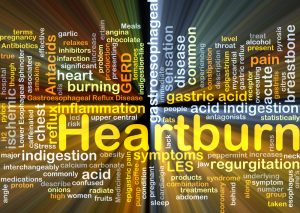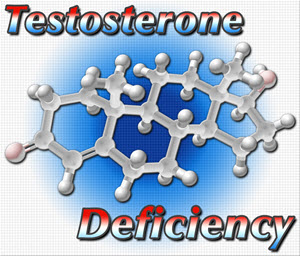 Heartburn is incredibly painful, and most people have experienced the condition at least a few times in their lives.
Heartburn is incredibly painful, and most people have experienced the condition at least a few times in their lives.
Surprisingly, though heartburn has been studied since the dawn of modern medicine, there are still a lot of important questions to be asked, and hypotheses that were previously considered correct are being questioned once again.
Heartburn and Acid Reflux is a widespread health issue throughout the United States. Around 20% of Americans deal with heartburn or Upper Gastrointestinal Pain.
Video Link: https://vimeo.com/290590801
Video Download: Click Here To Download Video
Video Stream: Click Here To Stream Video
What Causes Heartburn?
For closing in on a century, it has generally been agreed upon that the cause of heartburn is the excess secretion of acid in the esophagus.
Recent research provides convincing evidence that Heartburn is a much more complex condition, and that the problem isn't due directly to the influence of the acid itself, but to inflammation that stimulates that acid production.
 Chronic inflammation is a major medical issue that has far-reaching effects, and new research shows that inflammation has a powerful impact on proper digestion, and can lead to heartburn in many patients, exacerbating the issues already resulting from elevated acid levels.
Chronic inflammation is a major medical issue that has far-reaching effects, and new research shows that inflammation has a powerful impact on proper digestion, and can lead to heartburn in many patients, exacerbating the issues already resulting from elevated acid levels.
Redefining Heartburn: GERD
The scientific term for Heartburn is Gastro-Esophageal Reflux Disease (GERD), relating to the buildup of stomach acid from the gut to the esophagus. This, as we are learning, is no longer the whole story, but treatments for GERD have long centered upon medications that temporarily relieve acid buildup.
The first modern heartburn treatments were calcium pills, and later in the 20th century medications such as Pepcid and Zantac (First Gen Acid Blockers) were a more sophisticated treatment option.
Around the turn of the century, some drugs, such as Protonix, Aciphex, Nexium, Prevacid, and Prilosec replaced the 1st generation medications. These drugs all belong to a class known as Protein Pump Inhibitors (PPIs).
Right now, PPIs are the most common treatments for men and women that suffer from severe, chronic heartburn. Recently published research, however, shows us that there may be a much more effective way to manage GERD on the horizon, due to changes in our understanding of how heartburn is triggered.
Researchers at the Dallas Veterans Administration Medical Center and the UT Southwestern Medical Center have uncovered convincing evidence that the cause of GERD is not due directly to acid buildup, but to the inflammatory influence of cytokines.
Cytokines are released by the immune system and directly elicit inflammation response. There are some different cytokines, including Interleukin and Interferon.
Heartburn Research Discussion
In this potentially monumental study, scientists performed animal research with mice in an attempt to simulate the effects of GERD on the body.
They did this by exposing mouse intestinal tissue with simulated stomach acid. It was hypothesized that this would accurately mimic the effects of acid reflux. In their attempt to prove this hypothesis, however, they uncovered that acid exposure is only a single, intermediary aspect of GERD.
The acid did not lead directly to damage associated with heartburn, but it took some days before the exposure triggered physiological effects resembling GERD. Exposure to stomach acid led to inflammation over this time, which then caused the symptoms that researchers recognize as GERD.
Heartburn Treatment Vs. Heartburn Prevention
One of the most significant changes in science today is a changing emphasis on providing treatment of symptoms to offering long-term solutions in the form of prevention. This study is an example of such a change.
Current and future therapies designed to relieve acid buildup still have a firm place in heartburn treatment, especially about sudden flare-ups of Acid Reflux, but by changing the long-term focus to inflammation mitigation, it offers the potential to provide much better treatments to patients that suffer from GERD.
PPI Side Effects
The most important reason that we need new treatments for Heartburn and Acid Reflux is that Proton-Pump Inhibitors have a host of potentially dangerous side effects associated with them.
The following are a list of Side Effects related to PPIs:
- PPIs Increase the Risk of Heart Attack. People that use PPIs frequently have up to a 21% increased incidence of a heart attack as compared to those with GERD that did not opt for the treatment.
- Proton-Pump Inhibitors can lead to some critical Nutritional Deficits, including iron, zinc, calcium, Vitamin D, Vitamin B12, and magnesium deficiency.
- PPIs Contribute to Osteoporosis. Because PPIs inhibit calcium absorption, this aggravates bone loss, exacerbating the condition.
- These drugs can also cause Irritable Bowel Disease. The proper function of the digestive system relies heavily on microflora in the large and small intestines. Different gut bacteria thrive in different acid climates. Taking PPIs for GERD can lead to changes in gut microflora that impact the function of the large intestine and lower GI Tract, causing issues such as constipation, diarrhea, cramps, and bloating.
- Proton-Pump Inhibitors lead to an increased risk of colitis and gastrointestinal infection. In addition to helping digest food, stomach acids also play a role in immune health, killing bacteria and viruses that pass through the digestive system. Among the infections associated with PPIs are C. dificile, E. coli, and Norovirus.
- PPIs have been shown to significantly increase the risk of dementia in patients, to the tune of 44%. In animal research, Proton-Pump Inhibitors directly contribute to higher levels of Amyloid Plaque in brain tissue.
- Older patients that take PPIs are more likely to experience life-threatening Pneumonia. This may be somewhat surprising, but the act of breathing can cause bacteria from the gut to enter the lungs and take root, directly leading to Pneumonia, especially among those that have trouble swallowing.
- There are some other issues related to the use of PPIs, including a headache, rashes, and nausea.
As you can see, there are significant drawbacks to the use of Proton-Pump Inhibitors, and many doctors hope to limit their therapeutic use as much as possible as a result.
By taking this new information regarding GERD and using it to create new treatments for Acid Reflux and Heartburn that focus on relieving inflammation, perhaps we can entirely circumvent the need for PPIs for GERD.
How to Treat Heartburn the Right Way
In addition to these side effects, there is also the issue of antacid effectiveness. Often, PPIs only mitigate the pain associated with heartburn, rather than resolving the pain completely, thus leaving many to suffer even still when taking these potentially dangerous drugs.
Although heartburn is a temporary issue for many patients, for others, it is a chronic and debilitating health issue. If we can move beyond merely treating the symptoms of GERD and work on the cause, everyone wins.
There are millions of people nationwide that turn to antacid medications on at least a somewhat regular basis.
Long-Term Use of Antacids
 Using PPIs and other drugs for heartburn for an extended period vastly increases the risk of experiencing the issues again soon after treatment is suspended.
Using PPIs and other drugs for heartburn for an extended period vastly increases the risk of experiencing the issues again soon after treatment is suspended.
After a few weeks, the body acclimates to the presence of these drugs, and when the effects of the medications subside, the body starts producing acid again, and natural acid mitigation is stunted. PPIs are significant for the drug industry but terrible for the consumer.
It's important to recognize that, when you stop using Antacids, the pain isn't the result of physiological damage, but due to elevated levels of acid in the Digestive Tract.
It's important to find a doctor that can help you find alternative treatments for GERD so that you can overcome the need for currently available Antacids if at all possible.
Contact Us Today For A Free Consultation

- Testosterone for Women [Last Updated On: December 1st, 2023] [Originally Added On: December 29th, 2013]
- Testosterone Androgen [Last Updated On: December 11th, 2023] [Originally Added On: December 29th, 2013]
- Testosterone and Body Building [Last Updated On: December 14th, 2023] [Originally Added On: December 30th, 2013]
- Testosterone Levels [Last Updated On: December 6th, 2023] [Originally Added On: December 31st, 2013]
- Testosterone Gel, Cream, and the Testosterone Patch [Last Updated On: November 28th, 2023] [Originally Added On: December 31st, 2013]
- Buy Testosterone | Types of Testosterone Replacement Therapy Programs, Injections, Cream and Gel [Last Updated On: December 13th, 2023] [Originally Added On: December 31st, 2013]
- Buy Testosterone Injections Online, Testosterone Prescription for Low T, Testosterone Replacement Therapy [Last Updated On: October 16th, 2020] [Originally Added On: January 1st, 2014]
- Aging and Testosterone Replacement Therapy [Last Updated On: December 12th, 2023] [Originally Added On: January 3rd, 2014]
- What Causes Low Testosterone [Last Updated On: December 10th, 2023] [Originally Added On: January 7th, 2014]
- Hormone Levels in Men [Last Updated On: December 4th, 2023] [Originally Added On: January 12th, 2014]
- Hormone Level Testing [Last Updated On: November 29th, 2023] [Originally Added On: January 13th, 2014]
- Types of Testosterone Products and Delivery [Last Updated On: December 8th, 2023] [Originally Added On: January 22nd, 2014]
- Testosterone Therapy Helps Men with Low-T Ward Off Prostate Cancer [Last Updated On: May 29th, 2024] [Originally Added On: December 29th, 2019]
- The Importance of Dietary Fat for Testosterone Production [Last Updated On: July 8th, 2024] [Originally Added On: January 2nd, 2020]
- Testosterone Deficiency and Low-T at Epidemic Levels Among Men in the United States [Last Updated On: May 27th, 2024] [Originally Added On: May 17th, 2020]
- The Effects of Testosterone Therapy on Male Patients -- Who Should Use Testosterone? [Last Updated On: December 20th, 2023] [Originally Added On: June 16th, 2020]
- Does Ibuprofen Contribute to Low Testosterone? [Last Updated On: January 27th, 2024] [Originally Added On: June 20th, 2020]
- The Link Between Testosterone and Lower Rates of Autoimmune Diseases Among Men [Last Updated On: January 30th, 2024] [Originally Added On: June 21st, 2020]
- Weight Cycling and the Problem with Crash Dieting [Last Updated On: April 8th, 2024] [Originally Added On: July 30th, 2020]
- Reexamining Bio-Identical Testosterone Therapy [Last Updated On: June 18th, 2024] [Originally Added On: August 12th, 2020]
- Understanding how Muscle and Fat Impact Body Mass, Weight, and Health [Last Updated On: April 15th, 2024] [Originally Added On: August 25th, 2020]
- The Role of Nitric Oxide in Cancer Proliferation And Prevention [Last Updated On: May 3rd, 2024] [Originally Added On: August 26th, 2020]
- What is Erectile Dysfunction? [Last Updated On: April 20th, 2024] [Originally Added On: August 30th, 2020]
- Sermorelin Acetate Drug Information [Last Updated On: April 7th, 2024] [Originally Added On: August 31st, 2020]
- Exercise and Mental Health [Last Updated On: April 5th, 2024] [Originally Added On: September 1st, 2020]
- The Importance of Proteins, Carbs, and Fats [Last Updated On: March 11th, 2024] [Originally Added On: September 2nd, 2020]
- Low-T Treatment Before and After -- How Testosterone Therapy Improves Vitality [Last Updated On: April 9th, 2024] [Originally Added On: September 6th, 2020]
- Changes to LabCorp Guidelines for Low-T Diagnosis and How They Impact Your Treatment [Last Updated On: July 14th, 2024] [Originally Added On: September 22nd, 2020]
- The Effects of Testosterone on Asthma Prevalence Among Men and Women [Last Updated On: February 19th, 2024] [Originally Added On: October 6th, 2020]
- 7 Exercises to Elevate Testosterone Levels [Last Updated On: June 13th, 2024] [Originally Added On: October 10th, 2020]
- Vitamin A is Essential for Good Health - Are You Getting Enough ? [Last Updated On: April 16th, 2024] [Originally Added On: October 14th, 2020]
- Testosterone and Diet – How to Support Testosterone Levels with Healthy Eating [Last Updated On: June 7th, 2024] [Originally Added On: October 29th, 2020]
- The Significance of Telomeres in Stem Cell Treatments [Last Updated On: March 16th, 2024] [Originally Added On: November 27th, 2020]
- The Influence of Testosterone on Protective Mating Behaviors in Men [Last Updated On: January 25th, 2024] [Originally Added On: December 6th, 2020]
- The Role of Testosterone in Women's Health [Last Updated On: December 24th, 2023] [Originally Added On: December 7th, 2020]
- Testosterone Promotes Bone Health and Can Help Treat Osteoporosis [Last Updated On: February 15th, 2024] [Originally Added On: December 17th, 2020]
- The Relationship Between Testosterone and Cortisol [Last Updated On: April 2nd, 2024] [Originally Added On: December 19th, 2020]
- The Importance of Sex Hormone-Binding Globulin (SHBG) for Healthy Testosterone Levels [Last Updated On: March 9th, 2024] [Originally Added On: December 28th, 2020]
- 12 Health Issues That Can Kill Libido and Limit Sexual Performance [Last Updated On: May 23rd, 2024] [Originally Added On: January 3rd, 2021]
- 4 Foods to Boost Your Testosterone Levels [Last Updated On: February 7th, 2024] [Originally Added On: January 4th, 2021]
- Low Testosterone Symptoms [Last Updated On: December 31st, 2023] [Originally Added On: January 7th, 2021]
- Is Male Menopause Real? The Science of Andropause [Last Updated On: January 15th, 2024] [Originally Added On: January 11th, 2021]
- Relieve Fatigue and Increase Energy with Testosterone Replacement Therapy [Last Updated On: January 16th, 2024] [Originally Added On: January 16th, 2021]
- How to Administer a Testosterone Injection -- Low-T Injection Guide [Last Updated On: February 28th, 2024] [Originally Added On: January 17th, 2021]
- Testosterone Levels Associated with Serotonin Activity in the Brain [Last Updated On: March 26th, 2024] [Originally Added On: January 19th, 2021]
- Grumpy Old Man Syndrome – Causes and Treatments [Last Updated On: June 8th, 2024] [Originally Added On: January 22nd, 2021]
- The Effects of Beer on Testosterone Production and Gynecomastia [Last Updated On: March 21st, 2024] [Originally Added On: January 30th, 2021]
- Testosterone Frequently Asked Questions [Last Updated On: February 6th, 2024] [Originally Added On: February 26th, 2021]
- Testosterone Supplements: Vitamin and Amino Acid Pills Versus Real Testosterone [Last Updated On: November 21st, 2024] [Originally Added On: March 1st, 2021]
- Testosterone Side Effects, Risks, Dangers and Negative Effects [Last Updated On: November 7th, 2024] [Originally Added On: March 2nd, 2021]
- Testosterone for Men [Last Updated On: February 20th, 2024] [Originally Added On: April 13th, 2021]
- Testosterone Testing [Last Updated On: November 9th, 2024] [Originally Added On: May 7th, 2021]
- Hormone Replacement Therapy: Commonly Asked Questions [Last Updated On: February 20th, 2024] [Originally Added On: June 16th, 2023]
Word Count: 1255




















